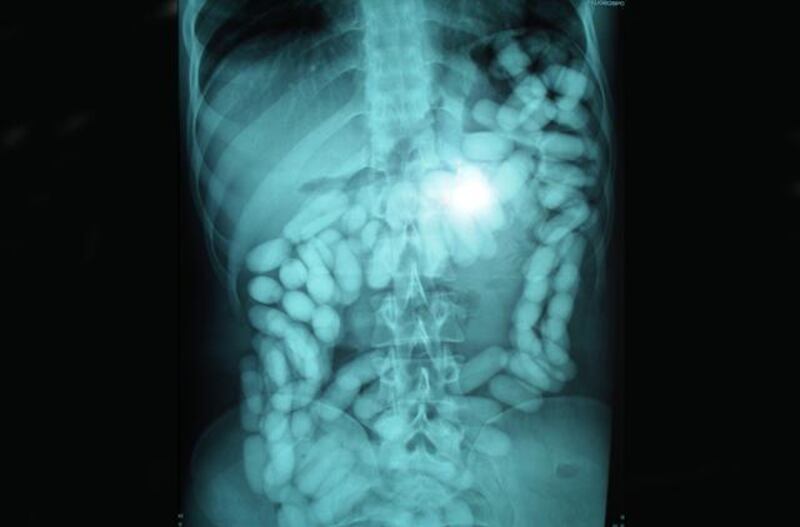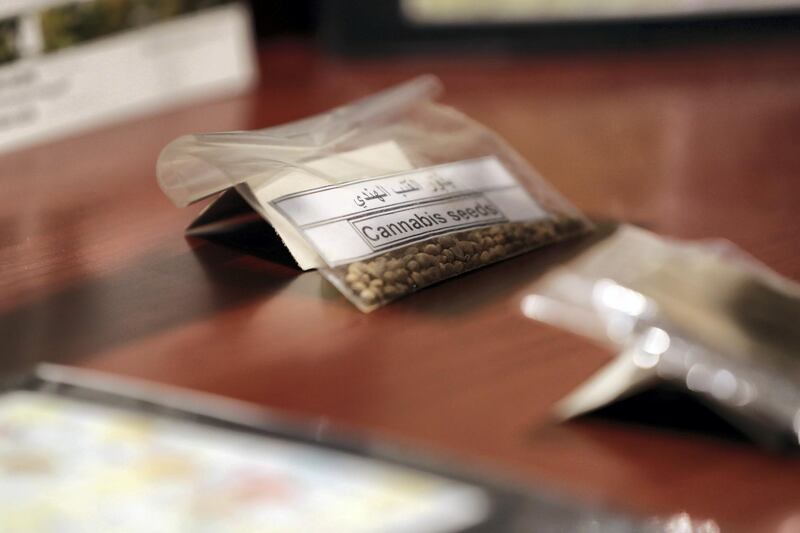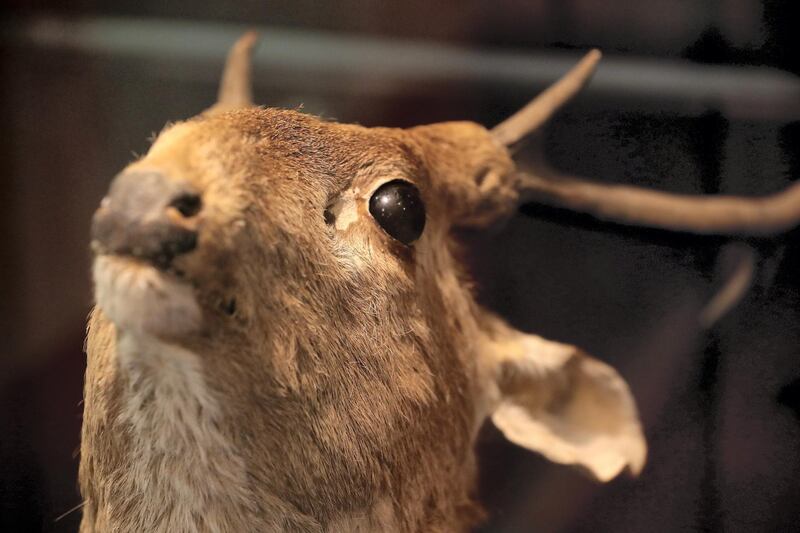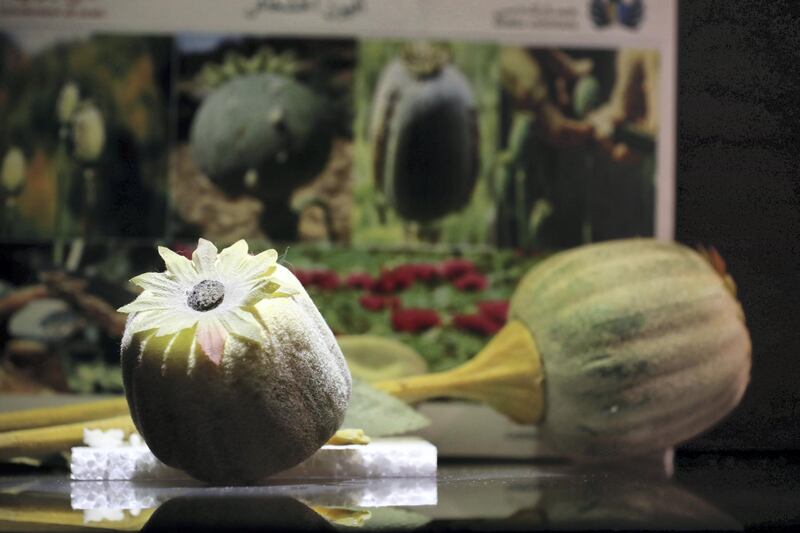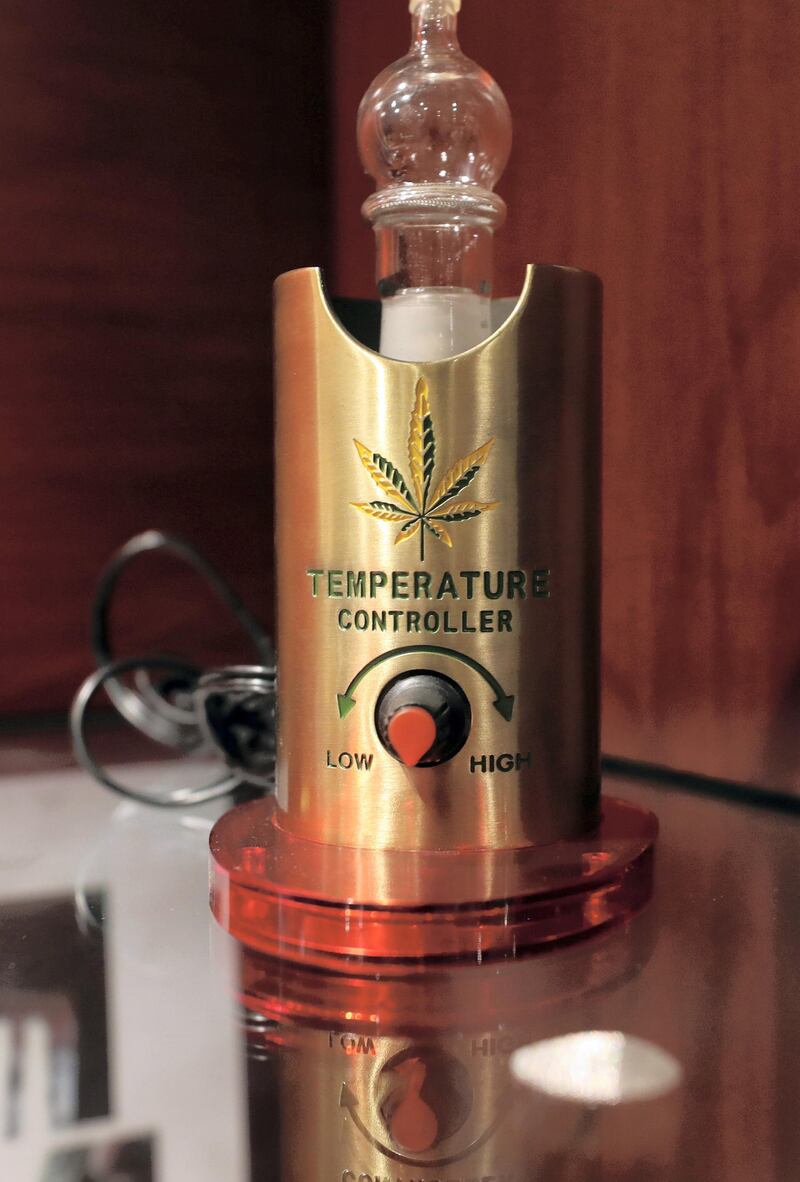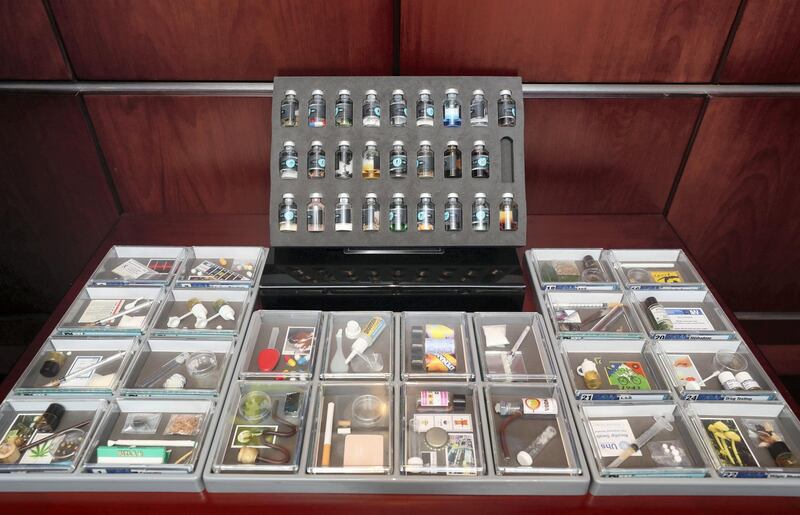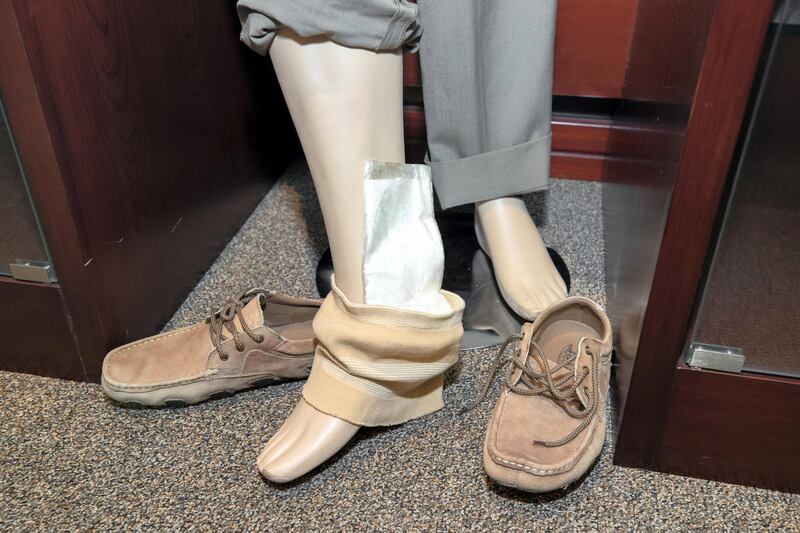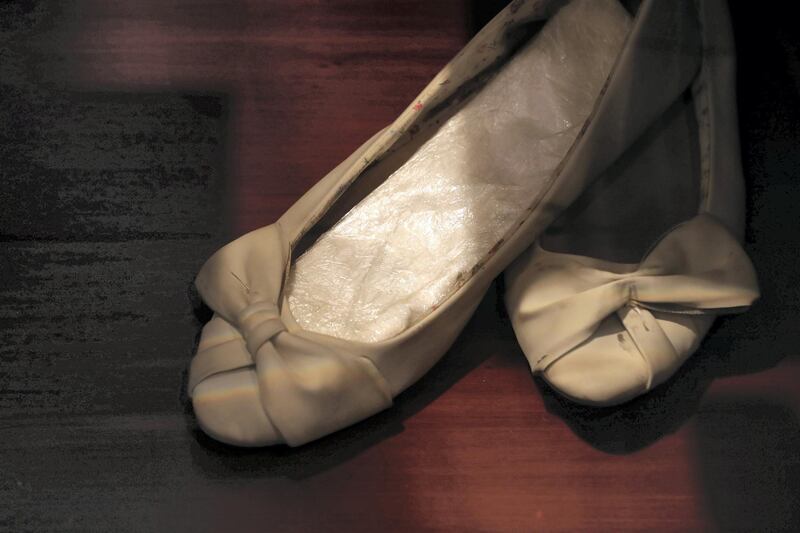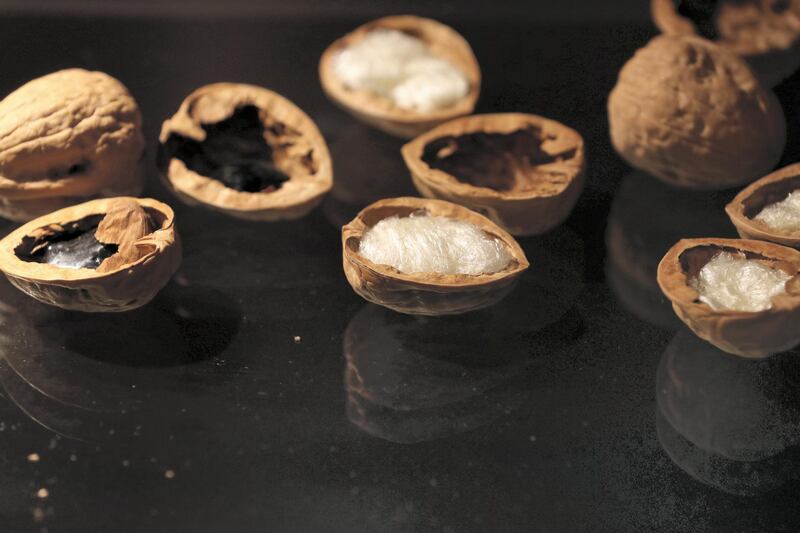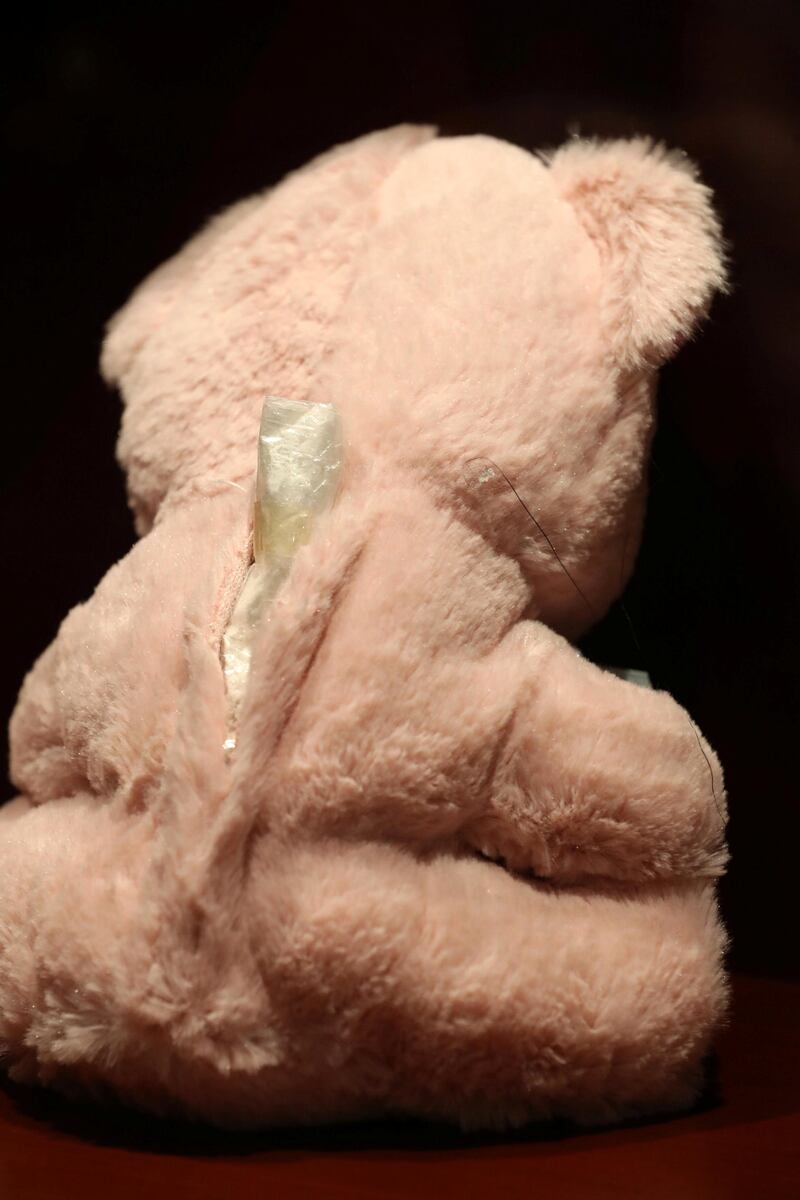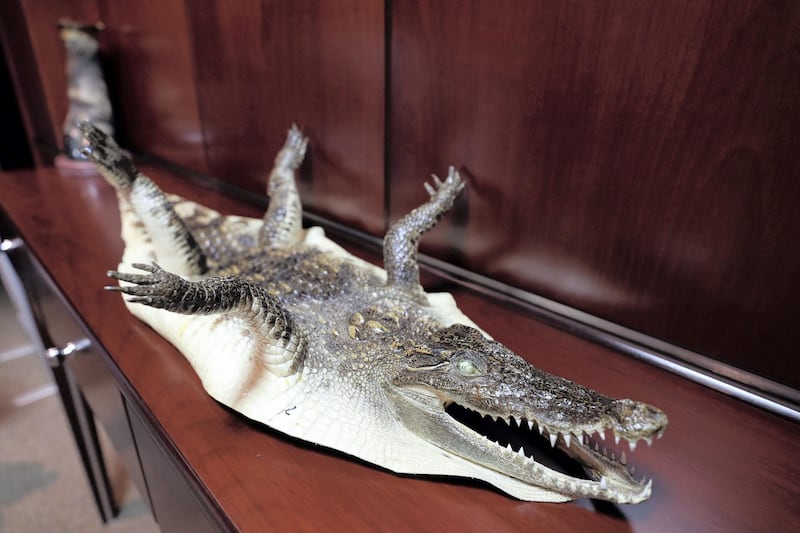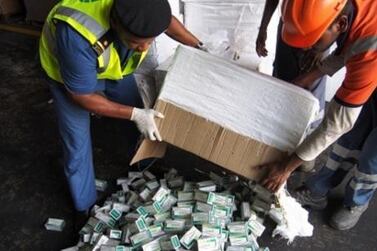The fate of so-called drug mules who were paid as little as Dh5,000 to risk their lives and freedom has put the spotlight on a dangerous and desperate trade.
The authorities foiled several smuggling attempts in recent months at Dubai International Airport and other entry points into the country.
Most smugglers were trying to conceal methamphetamine and cocaine; others were carrying heroin.
Many had dozens of latex-wrapped packages in their stomachs, typically swallowed with the help of olive oil.
"We referred suspects who carried as many as 100 capsules inside their stomachs for prosecution," said Saleh Al Shehhi of Dubai Narcotics Department.
Many of the smugglers appeared to be low-income earners from developing countries.
An analysis by The National of drug cases heard at Dubai Courts this year found that many 'mules' were from Afghanistan and Nigeria.
"They don’t know that by doing this, they face two imminent dangers – dying or being imprisoned for nearly 10 years," Mr Al Shehhi said.
One case involved a couple and their 10-year-old child who were caught at Dubai International Airport.
"All three had swallowed drugs to deliver to someone in Dubai and they did it in return for only Dh5,000," the prosecutor said. "Preying on the poor to smuggle drugs by swallowing them is one of the most dangerous and dehumanising methods of drug smuggling."
At least two so-called mules were found hallucinating in central Dubai, having made it through the airport only for some of the wraps to burst in their stomachs.
Last November, police received a call to Festival City after a 29-year-old Ugandan man who had been acting erratically leapt into the Dubai Creek.
He had swallowed just under half a kilogram of amphetamine, some of which made it into his system.
Another courier, aged 27 and from Afghanistan, was arrested in Bur Dubai after he was seen acting strangely. He is believed to have passed through the airport with 180 grams of methamphetamine in his stomach and was caught while waiting for the men who had hired him.
Court records said he was found perched on a chair and panicking that his feet may touch the ground. Eyewitnesses called the police, recognising that he was intoxicated. A drug packet had burst in his stomach.
In the 15 court cases The National examined, all those convicted were sentenced to prison terms of between seven and 10 years, to be followed by deportation. They were also fined between Dh50,000 and Dh100,000, which must be paid before they can leave jail.
Mr Al Shehhi said the fight against drugs is becoming more difficult, as many deals are arranged by text and WhatsApp messages.
“The peddlers advertise drugs online then buyers transfer the money to an account that's often abroad," the prosecutor said.
"Then a GPS location of the drugs is sent in a text message to the customer, who picks up the stash without the need for communicating directly with any of the gang members.
"This reflects the challenges faced by law enforcement."
Mr Al Shehhi said anyone buying drugs is supporting a trade that sustains other criminal enterprises, including "human trafficking and currency counterfeiting".
Drug 'mules' are only one part of the challenge. Other smugglers were found with illegal substances inside a wheelchair frame or hidden in shoes and bottles of cream.
The customs team at Dubai International Airport made 1,306 criminal and 257 customs seizures in the first six months of this year.
Last year, officers caught more than 1,000 people attempting to smuggle illegal goods through the airport.
Police also tackled major smuggling operations on ships this year. Millions of Captagon pills were seized at Jebel Ali Port in May and another 800,000 in July at the same transport hub.
